« Return to all search results
Title Search Results
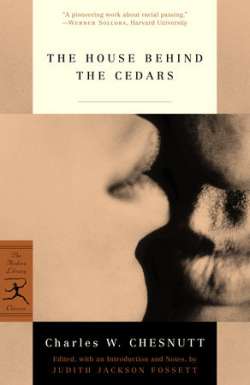
The House Behind the Cedars, which many consider Charles Chesnutt’s finest novel, tells of John and Lena Walden, mulatto siblings who pass for white in the postbellum American South. The drama that unfolds as they travel between black and white worlds constitutes a riveting portrait of the shifting and intractable nature of race in American life. This edition revitalizes a much-neglected masterpiece by one of our most important African-American writers. As Werner Sollors writes, “William Dean Howells did not overstate his case when he compared Chesnutt’s works with those by Turgenev, Maupassant, and James . . . and [Chesnutt] has become one of the most important ‘crossover’ authors from the African-American tradition.”

The Prodigal Troll is a tale of a human child raised by a band of mythological creatures that is both hysterical and moving.When Lord Gruethrist's castle is laid under siege by an invading baron, he sends a trusted knight and nursemaid off with his infant son. Their escape across a wilderness landscape populated by fantastic creatures and torn by war takes unexpected turns until the baby is finally adopted by a mother troll grieving for her own lost child. Christened "Maggot" by a hostile stepfather, the human boy grows up amid the crude but democratic trolls until he leaves the band to rediscover the world of humankind.But the world of man is a complex and capricious place. Maggot must master its strange ways if he is to survive... let alone win the heart and hand of the Lady Portia.Finlay's society of trolls are unlike any you've ever read before, and his matriarchal medieval world, pitted as they are against an analog of Native American tribesmen, provides a rich setting for many poignant social and political insights.
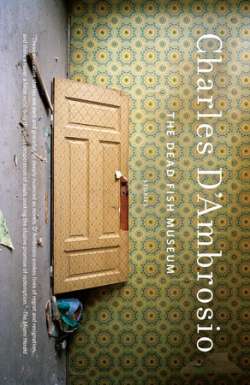
“In the fall, I went for walks and brought home bones. The best bones weren’t on trails—deer and moose don’t die conveniently—and soon I was wandering so far into the woods that I needed a map and compass to find my way home. When winter came and snow blew into the mountains, burying the bones, I continued to spend my days and often my nights in the woods. I vaguely understood that I was doing this because I could no longer think; I found relief in walking up hills. When the night temperatures dropped below zero, I felt visited by necessity, a baseline purpose, and I walked for miles, my only objective to remain upright, keep moving, preserve warmth. When I was lost, I told myself stories . . .”So Charles D’Ambrosio recounted his life in Philipsburg, Montana, the genesis of the brilliant stories collected here, six of which originally appeared in The New Yorker. Each of these eight burnished, terrifying, masterfully crafted stories is set against a landscape that is both deeply American and unmistakably universal. A son confronts his father’s madness and his own hunger for connection on a misguided hike in the Pacific Northwest. A screenwriter fights for his sanity in the bleak corridors of a Manhattan psych ward while lusting after a ballerina who sets herself ablaze. A Thanksgiving hunting trip in Northern Michigan becomes the scene of a haunting reckoning with marital infidelity and desperation. And in the magnificent title story, carpenters building sets for a porn movie drift dreamily beneath a surface of sexual tension toward a racial violence they will never fully comprehend. Taking place in remote cabins, asylums, Indian reservations, the backloads of Iowa and the streets of Seattle, this collection of stories, as muscular and challenging as the best novels, is about people who have been orphaned, who have lost connection, and who have exhausted the ability to generate meaning in their lives. Yet in the midst of lacerating difficulty, the sensibility at work in these fictions boldly insists on the enduring power of love. D’Ambrosio conjures a world that is fearfully inhospitable, darkly humorous, and touched by glory; here are characters, tested by every kind of failure, who struggle to remain human, whose lives have been sharpened rather than numbed by adversity, whose apprehension of truth and beauty has been deepened rather than defeated by their troubles. Many writers speak of the abyss. Charles D’Ambrosio writes as if he is inside of it, gazing upward, and the gaze itself is redemptive, a great yearning ache, poignant and wondrous, equal parts grit and grace.A must read for everyone who cares about literary writing, The Dead Fish Museum belongs on the same shelf with the best American short fiction.From the Hardcover edition.
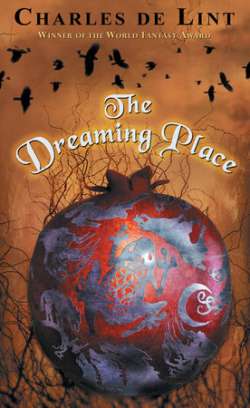
World Fantasy Award winner Charles de Lint conjures a thrilling, otherworldly tale of magic and family bonds.A young woman locked in rage yet seeking magic, Ash is drawn into a wondrous Otherworld of totems and dryads, living tarots and mystic charms. At the same time, Ash's cousin Nina is stalked by an Otherworld demon—a manitou who can force her mind and soul into the bodies of beasts. Ash must find the strength to overcome her own anger, learn the full power of magic, and save Nina before she becomes the manitou's weapon, turning the faerie realm into an arctic wasteland. De Lint fans will relish this urban and otherworldly fantasy, partially set in the author's trademark Newford."A compelling fantasy that combines elements of Native American and Celtic mythology to create a fluid and unexpected otherworld, open to all with the ability to enter and traverse it."—School Library Journal

The compelling and powerful first novel from World Fantasy Award winner Charles de Lint!He is the Songweaver, but before he was a master of song he was merely Cerin of Wran Cheaping—a seventeen-year-old orphan raised by a wildland witch. Then he encountered the Maid of the Grey Rose—the lone survivor of the war that devastated the Trembling Lands and the promised bride of Yarac Stone-Slayer, the feared and terrible Waster. The mysterious beauty captured Cerin's heart, drawing him into a world both dark and deadly, until armed with only a tinkerblade and the magic of song, he would take on a man's challenge . . . and choose a treacherous path toward a magnificent destiny."Charles de Lint is one of the most gifted storytellers writing fantasy today."—Locus
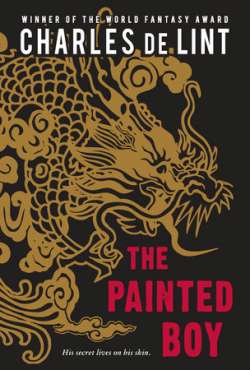
Jay Li should be in Chicago, finishing high school and working at his family's restaurant. Instead, as a born member of the Yellow Dragon Clan-part human, part dragon, like his grandmother-he is on a quest even he does not understand. His journey takes him to Santo del Vado Viejo in the Arizona desert, a town overrun by gangs, haunted by members of other animal clans, perfumed by delicious food, and set to the beat of Malo Malo, a barrio rock band whose female lead guitarist captures Jay's heart. He must face a series of dangerous, otherworldly-and very human-challenges to become the man, and dragon, he is meant to be. This is Charles de Lint at his best!

Deep within the remote backlands of nineteenth-century Brazil lies Canudos, home to all the damned of the earth: prostitutes, bandits, beggars, and every kind of outcast. It is a place where history and civilization have been wiped away. There is no money, no taxation, no marriage, no census. Canudos is a cauldron for the revolutionary spirit in its purest form, a state with all the potential for a true, libertarian paradise--and one the Brazilian government is determined to crush at any cost. In perhaps his most ambitious and tragic novel, Mario Vargas Llosa tells his own version of the real story of Canudos, inhabiting characters on both sides of the massive, cataclysmic battle between the society and government troops. The resulting novel is a fable of Latin American revolutionary history, an unforgettable story of passion, violence, and the devastation that follows from fanaticism.
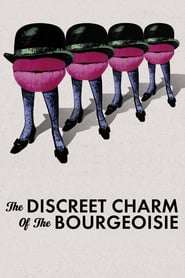
In Luis Buñuel’s deliciously satiric masterpiece, an upper-class sextet sits down to dinner but never eats, their attempts continually thwarted by a vaudevillian mixture of events both actual and imagined.

An immersive 360-degree narrative telling the epic story of the Vietnam War as it has never before been told on film. Featuring testimony from nearly 80 witnesses, including many Americans who fought in the war and others who opposed it, as well as Vietnamese combatants and civilians from both the winning and losing sides.

In 323 B.C.E, having conquered Persia, Alexander the Great set his sights on Arabia, then suddenly succumbed to a strange fever. Locating his final resting place–unknown to this day–remains a tantalizing goal for both archaeologists and treasure hunters. Now the quest for this coveted prize is about to heat up. And Cotton Malone–former U.S. Justice Department agent turned rare-book dealer–will be drawn into an intense geopolitical chess game. After narrowly escaping incineration in a devastating fire that consumes a Danish museum, Cotton learns from his friend, the beguiling adventurer Cassiopeia Vitt, that the blaze was neither an accident nor an isolated incident. As part of campaign of arson intended to mask a far more diabolical design, buildings across Europe are being devoured by infernos of unnatural strength.And from the ashes of the U.S.S.R., a new nation has arisen: Former Soviet republics have consolidated into the Central Asian Federation. At its helm is Supreme Minister Irina Zovastina, a cunning despot with a talent for politics, a taste for blood sport, and the single-minded desire to surpass Alexander the Great as history’s ultimate conqueror. Backed by a secret cabal of powerbrokers, the Federation has amassed a harrowing arsenal of biological weapons. Equipped with the hellish power to decimate other nations at will, only one thing keeps Zovastina from setting in motion her death march of domination: a miraculous healing serum, kept secret by an ancient puzzle and buried with the mummified remains of Alexander the Great–in a tomb lost to the ages for more than 1,500 years.Together, Cotton and Cassiopeia must outrun and outthink the forces allied against them. Their perilous quest will take them to the shores of Denmark, deep into the venerated monuments of Venice, and finally high inside the desolate Pamir mountains of Central Asia to unravel a riddle whose solution could destroy or save millions of people–depending on who finds the lost tomb first.
